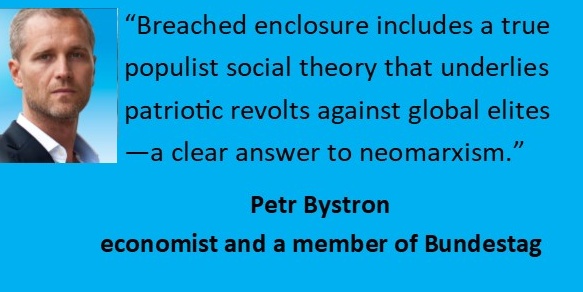I wrote that it is important to distinguish between two modes of ownership (more precisely, two modes of ownership of the means of production). Either ownership tends to mean that the owner controls the factory, farm or other unit of production, makes decisions about it, orders the workers, etc. It is basically indifferent whether he does this directly or through a hired manager. He simply controls the company, the company produces something and he profits from it. As a rule, he also gets personal pleasure and prestige from it.
The second mode is that the owner neither controls nor wants to control the company. He buys tiny shares in various companies. He then resells or buys those shares depending on how profitable the individual firms are (how the financial ratios work out). He doesn’t really care what is produced there or who works there. He too can do it through managers, investment funds, etc.
You may recall the dichotomy of the Czech anthropologist Ivo Budil, who distinguishes between productive forces and speculative forces. It’s really just another description of the same thing.
This – among other things – implies two types of state regulation. Some regulations restrict the rights of the owner in a real firm. For example, they prohibit him from chrome plating parts. Or they require him to provide hot meals for his employees. Or they forbid him from making cars without automatic speed limiters. Or they set fire regulations. In the last generation, we have seen complaints that these regulations are excessive, nonsensical, work-stopping, job-destroying and industry-destroying. It really does seem that the state bureaucracy has gone mad. But even where there is sensible regulation, it is hampering work and reducing productivity. We need to proceed with great caution and always carefully weigh up the cost-benefit ratio of any regulation.
But then there are other regulations. These restrict the flow of capital, what one can sell and buy, what one can speculate on and so on. Businesses themselves are not affected at all.
That is the trap of deregulation. When politicians talk about liberalisation, deregulation and, eventually, privatisation, they do not mean that businesses will be able to chrome products or that restaurants will no longer be obliged to have a special workstation in the kitchen for cracking eggs. It means relaxing the rules on speculation and capital flows. The result is that many real businesses will run into unnecessary problems, the quality of management will drop significantly, and it also means unleashing forces hostile to productive sectors.
This explains the apparent mystery of why, after every neoliberal reform, regulations increase dramatically, even though there is talk of reducing them.


